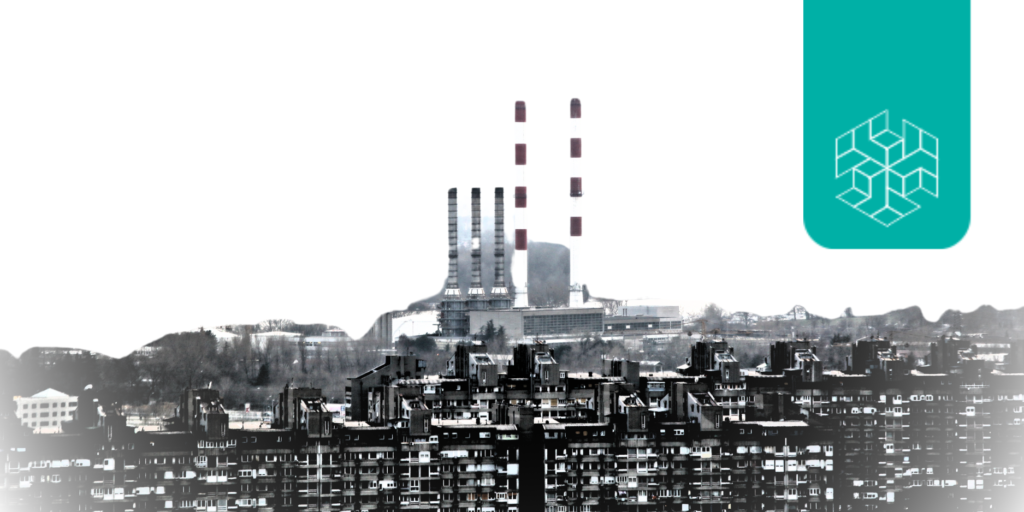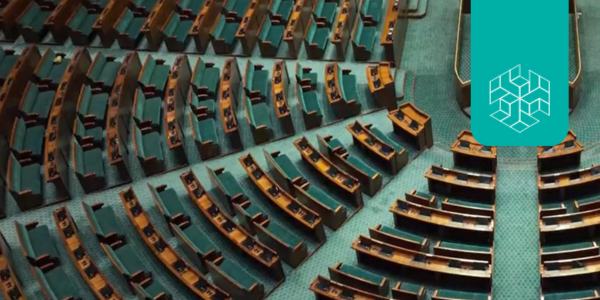Author: Nitika Khaitan
Editor: Riya Singh Rathore
ABSTRACT
On 11th May 2022, the Supreme Court passed an order allowing the central government to reconsider the sedition law. The apex court directed that in the meantime, all pending sedition trials should be kept in abeyance and stated that it hopes and expects the government not to register any new sedition cases or carry out investigations or arrests. Given the rampant misuse of the sedition provision to crack down on free speech, the order was celebrated as a victory for civil liberties. This commentary, however, points out several concerns raised by the sedition verdict that went unaddressed in its mainstream coverage, elucidating that hailing the order as a victory may be premature.
KEYWORDS: Supreme Court, Free Speech, Sedition, Constitutional Law, UAPA.
As the Supreme Court reconvenes after its annual summer vacation, one of the most-awaited hearings is the batch of petitions challenging the constitutionality of sedition. Right before the break, on 11th May 2022, the Supreme Court passed a highly unusual temporary order in the S. G. Vombatkere v. Union of India (2022) case. The Court decreed that all pending sedition trials be kept in abeyance and that it “hope[s] and expect[s]” the executive will not register new cases or carry out investigations or arrests (ibid.). Many lawyers and activists welcomed the order as a step toward repealing the often misused sedition provision (Lakshman & Rajagopal, 2022; Sinha, 2022). However, the exceptional nature of the order raises urgent concerns overlooked in mainstream coverage.
Sedition is defined in Section 124A of the Indian Penal Code as follows:
Whoever by words, either spoken or written, or by signs, or by visible representation, or otherwise, brings or attempts to bring into hatred or contempt, or excites or attempts to excite disaffection towards, the Government established by law in India, shall be punished with imprisonment for life, to which fine may be added, or with imprisonment which may extend to three years, to which fine may be added, or with fine.
Explanation 1.—The expression “disaffection” includes disloyalty and all feelings of enmity.
Explanation 2.—Comments expressing disapprobation of the measures of the Government with a view to obtaining their alteration by lawful means, without exciting or attempting to excite hatred, contempt or disaffection, do not constitute an offence under this section.
Explanation 3.—Comments expressing disapprobation of the administrative or other action of the Government without exciting or attempting to excite hatred, contempt or disaffection, do not constitute an offence under this section. (Indian Penal Code, 1860).
In 1962, in a landmark ruling, the Supreme Court restricted the scope of sedition to exclude “criticism of public measures or comment on Government action” (Kedar Nath Singh v. State of Bihar, 1962). The Court held that only “words, written or spoken, etc., which have the pernicious tendency or intention of creating public disorder or disturbance of law and order” would constitute sedition (ibid.). In keeping with this interpretation, in another landmark case in 1995, the Court overturned convictions under sedition for persons who had shouted pro-secessionist slogans such as ‘Khalistan Zindabad’ in a Chandigarh market a few hours after Indira Gandhi’s assassination (Balwant Singh and Another v. State of Punjab, 1995). The Court reiterated that such speech does not constitute sedition unless there is incitement to violence (ibid.).
However, as several studies of sedition have pointed out, “while the [Supreme Court] has stayed firm in its opinion on sedition […] the lower courts seem to continuously disregard this interpretation of the law” (Centre for the Study of Social Exclusion and Inclusive Policy & Alternative Law Forum, 2011). Sedition is misused as “a tool to silence political dissent and create a chill on freedom of expression” (PEN Canada, 2016). For instance, in 2021, sedition was invoked against two regional news channels in Andhra Pradesh for simply airing the statements of an MP rebelling against the state ruling party (D. Roy, 2021a).
A few months prior, the editor of Face the Nation, Dhaval Patel, had been kept in custody for over two weeks on charges of sedition. The charges were over an article stating that the Gujarat Chief Minister may be replaced due to the government’s poor handling of COVID-19 (Express News Service, 2020). In yet another instance, two FIRs were registered against journalist Vinod Dua in 2020, one in Delhi and one in Himachal Pradesh. Both registered the ruling party’s politicians’ complaints over Dua’s statement that the “central government had done nothing to stop” the February violence in Delhi and that the Prime Minister used “deaths and terror attacks” to get votes (Scroll Staff, 2020). As evident from the information available on all these cases, none met the requirement for incitement to violence. Yet, in each of these cases, the journalists were denied relief by lower courts and had to approach either the High Courts or Supreme Court to get bail or to get the cases quashed.
On several occasions, the Supreme Court has also acknowledged the flagrant misuse of sedition despite its rulings, making observations on its abuse (R. Roy, 2021b) and expressing the need to define limits (Vaidyanathan, 2021). Legal experts and human rights groups like Amnesty International lauded the 11th May order as a victory and a step in the right direction towards imposing such limits on sedition (Amnesty International India, 2022; HT News Desk, 2022; TimesofIndia.com, 2022). However, upon closer inspection, the order hardly represents any sort of a substantive win for rights-based jurisprudence. Instead, it raises more questions than answers, painting an unsettling picture of the apex court’s functioning.
Instead of looking into the constitutionality of the sedition provision, as the Supreme Court is meant to do, it allowed the central government’s request to re-examine sedition on its own “before the Competent Forum” (S. G. Vombatkere v. Union of India, 2022). The Court did not clarify what the government qualified as a ‘competent forum,’ nor did it lay down any timelines or specify any procedure for the re-examination.
Unlike constitutional hearings in the Supreme Court, which follow a set procedure and are transparent and open to the public, executive deliberations over laws are conducted opaquely. The government could choose to declare an ordinance, postpone deliberations till the next parliament session, or simply seek more time to decide on the next hearing date. The power of judicial review, the ability to strike down laws if they conflict with the Constitution, eventually rests with the judiciary. The procedure is especially so to ensure a check on executive power. In consciously choosing not to exercise this power, the judiciary has acted highly irregularly, leaving the fate of sedition up to the same branch of government that has been accused of misusing it.
Even more worryingly, any executive reconsideration of the sedition provision alone will hardly impact the status of free speech in India. Section 2(o) of the Unlawful Activities Prevention Act [UAPA] (1967a) defines ‘unlawful activity’ to include “words, either spoken or written, or by signs or by visible representation or otherwise, […] which causes or is intended to cause disaffection against India.” This definition is strikingly similar to the one of sedition. Section 13 of the UAPA penalises unlawful activity with imprisonment of up to seven years, with a fine (Unlawful Activities Prevention Act, 1967b). Even if the executive and legislature decide to repeal sedition, Section 13 UAPA can be used or misused in the same manner as sedition. Having constitutional hearings on sedition would have resulted in a judicial precedent, which would help counter the misuse of other free speech restrictions, such as under the UAPA. The 11th May order avoids this.
Prosecuting sedition requires the sanction of either the state or central government while prosecuting offences under Section 13 UAPA requires the sanction of the central government alone. Repealing sedition while keeping Sections 2(o) and 13 of the UAPA may thus confer “an important political advantage to the national ruling party,” giving it a “monopoly” for prosecuting such offences (Gopal, 2022).
Therefore, the temporary directions in the 11th May order, expected to remain in force while the executive reconsiders sedition, raises more questions than answers. It is unclear how much the Court’s “hope” and “expect[ation]” that the executive refrain from registering sedition FIRs and pursuing existing cases will sway the government (S. G. Vombatkere v. Union of India, 2022). The Court has not outlined any consequences if the government does register a new sedition case, except for making bail slightly easier in such cases (ibid.).
The Court further directed that “all pending trials, appeals and proceedings with respect to the charge framed under Section 124A of IPC be kept in abeyance. Adjudication with respect to other Sections, if any, could proceed if the Courts are of the opinion that no prejudice would be caused to the accused” (ibid.) According to one study, over 60% of sedition cases in the last decade invoked other laws, including the UAPA (Rangarajan, 2022). The Court’s direction thus will have little import for the accused in most sedition cases.
Instead of prematurely celebrating the order as a victory for civil liberties, we should be more vigilant of its impact. The suddenness with which the central government changed its stand before the Supreme Court, swinging from a defence of the sedition law to a request for time to reconsider the provision, merits extreme caution (ibid.). So does the ease with which the Court acceded to the government’s request, abdicating its own duty of judicial review for the moment. Now that the power to review has been passed to the executive, we may have to wait much beyond the next hearing date to ascertain the future of sedition and the fate of free speech restrictions.
REFERENCES
Centre for the Study of Social Exclusion and Inclusive Policy & Alternative Law Forum. (2011). Sedition Laws & The Death Of Free Speech In India. http://altlawforum.org/publications/sedition-laws-the-death-of-free-speech-in-india/ .
Amnesty International India. (2022, May 11). India: Supreme Court’s temporary suspension of sedition law a welcome step. https://www.amnesty.org/en/latest/news/2022/05/india-supreme-courts-temporary-suspension-of-sedition-law-a-welcome-step/.
Balwant Singh and Another v. State of Punjab, SCR (1) 411 (1995).
Express News Service. (2020, November 8). Gujarat HC Quashes Sedition Case against Editor Who Reported CM May Be Replaced. The Indian Express.
Gopal, G. M. (2022, May 25). Repealing of sedition law will still let Centre book perceived dissenters under UAPA, disempower states. National Herald. https://www.nationalheraldindia.com/india/repealing-of-sedition-law-will-still-let-centre-book-perceived-dissenters-under-uapa-disempower-states.
HT News Desk. (2022, May 11). ‘Victory…’: Mahua Moitra tweets after Supreme Court puts sedition law on hold. Hindustan Times. https://www.hindustantimes.com/india-news/sedition-law-mahua-moitra-victory-says-trinamool-mp-on-supreme-court-order-101652256641745.html.
Indian Penal Code, Act No. 45 of 1860, §124A, (1860). https://www.indiacode.nic.in/bitstream/123456789/2263/1/A1860-45.pdf.
Kedar Nath Singh v. State of Bihar, AIR 955 SC (1962).
Lakshman, A. & Rajagopal, K. (2022, May 11). Sedition law | Supreme Court order has the effect of making bail the rule in Section 124A cases. The Hindu. https://www.thehindu.com/news/national/sedition-law-supreme-court-order-has-the-effect-of-making-bail-the-rule-in-section-124a-cases/article65404690.ece.
PEN Canada. (2016). Imposing Silence: The Use of India’s Laws to Suppress Free Speech. https://issuu.com/pencanada/docs/imposing-silence-final.
Rangarajan, L. (2022, May 12). Hold The Celebrations: Supreme Court’s ‘Hopes & Expects’ Order Misses Opportunity To Judicially Review Sedition. Article 14. https://article-14.com/post/hold-the-celebrations-supreme-court-s-hopes-expects-order-misses-opportunity-to-judicially-review-sedition–627c131d5f0c9.
Roy, D. (2021a, May 17). Andhra-based TV5 and ABN news channels charged with Sedition, move Supreme Court against FIR; claim “chilling effect” on media. Bar & Bench. https://www.barandbench.com/news/litigation/tv5-news-channel-sedition-supreme-court-fir-says-chilling-effect-media.
Roy, R. (2021b, May 31). Any Sedition Case Against Channel For Showing Bodies Being Thrown Into River? Justice Chandrachud Takes Sarcastic Dig. LiveLaw.in. https://www.livelaw.in/top-stories/justice-chandrachud-sarcastic-dig-sedition-case-channel-bodies-thrown-river-174958.
Scroll Staff. (2020, June 14). Vinod Dua Gets Interim Protection from Arrest in Sedition Case, SC Refuses to Stay Investigation. Scroll.in. https://scroll.in/latest/964648/vinod-dua-gets-interim-protection-from-arrest-in-sedition-case-sc-refuses-to-stay-investigation.
- G. Vombatkere v. Union of India, Writ Petition (Civil) No. 682 of 2021, LiveLaw SC 470 (2022). https://www.livelaw.in/pdf_upload/470-sg-vombatkere-v-union-of-india-11-may-2022-417199.pdf
Sinha, B. (2022, May 11). In historic order, SC suspends sedition law, ‘hopes & expects’ govts will stop pursuing it. The Print. https://theprint.in/judiciary/in-historic-order-sc-suspends-sedition-law-hopes-expects-govts-will-stop-pursuing-it/951302/.
TimesofIndia.com. (2022, May 11). Much needed: Constitutional, legal experts welcome Supreme Court’s order to put sedition law on hold. Times of India. https://timesofindia.indiatimes.com/india/much-needed-constitutional-legal-experts-welcome-supreme-courts-order-to-put-sedition-law-on-hold/articleshow/91492231.cms.
Unlawful Activities Prevention Act, Act No. 37 of 1967, §2(o), (1967a). https://www.indiacode.nic.in/bitstream/123456789/1470/1/a1967-37.pdf.
Unlawful Activities Prevention Act, Act No. 37 of 1967, §13, (1967b). https://www.indiacode.nic.in/bitstream/123456789/1470/1/a1967-37.pdf.
Vaidyanathan, A. (2021, July 15). Sedition Law ‘Colonial’, Why Don’t You Drop It, Supreme Court Asks Centre. NDTV. https://www.ndtv.com/india-news/supreme-court-questions-sedition-law-calls-it-colonial-do-we-still-need-it-after-75-years-of-independence-2487010.



